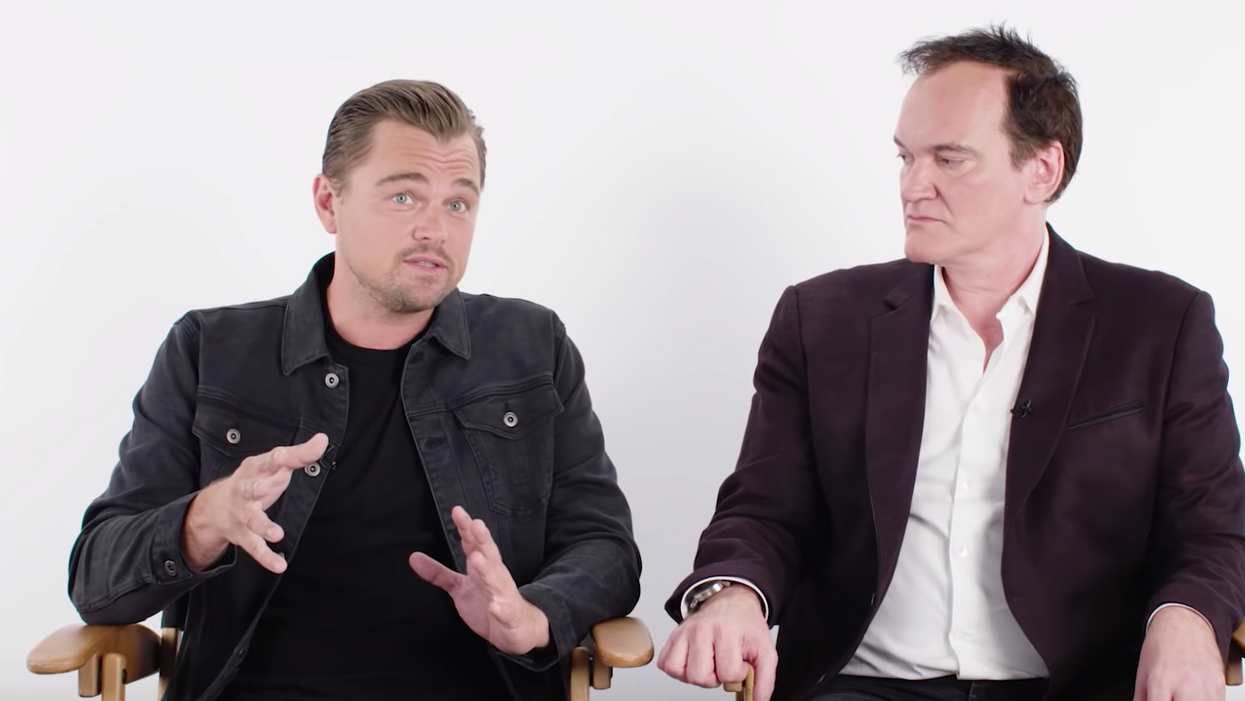How Tarantino and DiCaprio Crafted His 'Hollywood' Character
Leonardo DiCaprio and Quentin Tarantino break down how they wrote and developed Rick Dalton and the relationship between actor and director.

Developing a character that actors want to play is a real challenge. You have to draw them to the part but also work with them to build backstory and the way they'll arc.
So how do the masters do it?
Lucky for us, Vanity Fair sat with Quentin Tarantino and Leo DiCaprio to talk about the way they developed his character in Once Upon a Time...in Hollywood and how directors and actors need to work together to create memorable characters on screen.
Check out the video and let's break it down after the jump!
How Quentin Tarantino develops characters
When Tarantino sat down to write Once Upon a Time in Hollywood, he quickly realized that to understand parts of the movie, you had to be extremely fluent in the 1950s and 60s television scene. So, he spent a lot of time immersing himself in the shows of the day and was able to start to build out this person.
What I really loved about the video was how Tarantino came up with the logline for Once Upon a Time in Hollywood and then decided to see what actors would be comps to Rick Dalton. Once he fixated on leading men like Edd Byrnes and George Maharis, he began to write.
Even when the script was done, Tarantino understood that backstory was just as important to what happens on the page. Especially for the actor. Instead of writing his own backstory, he assembled a small library of inspirations. Then he shared them with DiCaprio.
DiCaprio calls this library and backstory "an actor's dream" because it allowed him to start to build the voice and actions that would make up Rick Dalton.
Together, they weeded through the library and pointed out actors DiCaprio thought were too confident, some untalented, and others too famous.
They came to Ralph Meeker, one of Tarantino's all-time favorites, and DiCaprio finally saw Rick Dalton.
How Tarantino and DiCaprio collaborate
Once they found a jumping-off point, the guys sat and discussed what made Rick Dalton...well...Rick Dalton.
They knew he was a character actor striving for stardom. The man was going through a mental breakdown. Much like his inspirations, he never pulled off the "TV to movie star" transition. He's desperate, even considering heading to Italy to do some spaghetti westerns.
One thing that deepens the character besides the backstory is the emotional arc he's going through. One that was central to the story and script, that was laid in by both Tarantino and DiCaprio after hours of discussions and watching of TV westerns.
It was the fact that Rick needed someone to believe in him. When he finds it, in the director of the Lancer television show, and his young co-star, he realizes that they believe in what's inside him. Not what he looks like on the outside. Rick may have the face of a star, but he's becoming more than just a face.
He's becoming a guy who wants to be seen in a different way.
And while this minutiae is great...Leo said one thing to Tarantino that changed the character...
"I need something to act!"
Collaboration isn't only about backstory, it's about who the character is right now.
So Tarantino and DiCaprio sat there and talked about famous actors and their pasts. DiCaprio would listen to their stories and then would create actable emotions out of it.
The biggest instance of that teamwork comes from Tarantino telling DiCaprio about Peter Duel from Alias Smith and Jones. Tragically, Duel committed suicide during the filming of the second season. Tarantino started digging into the depression that might have affected Duel and discovered he might have been an undiagnosed bipolar person. This made him drink...and it made DiCaprio understand how to play the role.
Leo wanted to play the movie with pendulum swings of emotion. This gave us a completely interesting motivation from which he could add subtext to every single scene.
And so...Rick Dalton was born.
What's next? Develop your own characters!
There are lots of terms thrown around when you try to write a character in a screenplay. But what sets character development apart from the pack, and why is it crucial to your story?
Click the link to learn more!
Source: Vanity Fair














